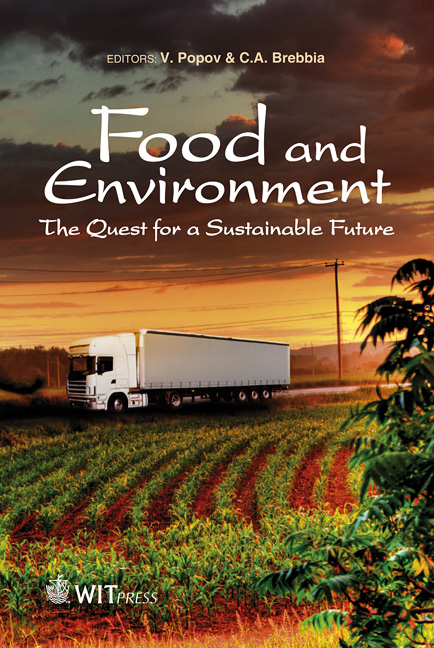Household Processing And Dissemination Of Tomato Paste Technology
Price
Free (open access)
Transaction
Volume
152
Pages
6
Page Range
157 - 162
Published
2011
Size
293 kb
Paper DOI
10.2495/FENV110161
Copyright
WIT Press
Author(s)
K. O. Zaka
Abstract
Three varieties of local tomatoes were processed into paste using a simple household processing technique to preserve the product. The chemical and proximate composition and sensory acceptability of the product were determined with storage period. Protein content, ether extract and ash contents were in the range of 1.12–2.90%, 0.28–0.56% and 4.39–6.32% respectively. pH, titratable acidity and total soluble solid content of the products with storage period were in the range of 4.23–4.72, 0.021–0.037% and 12–15% respectively. The paste from the varieties had different acceptability but none was rejected. Keywords: tomatoes, food processing, extension. 1 Introduction High post-harvest losses have been associated with many tropical and subtropical fruits due to lack of appropriate processing and storage technologies. Post-harvest losses of fruits and vegetables are extremely high in Nigeria (30– 50%), exacerbated by poor marketing, distribution and storage facilities (Aworh [1]). Tomato (Lycopersion esculentum) is an important vegetable grown in Nigeria. It is a rich source of natural vitamins and minerals in preventing scurvy and boosting the immune system and enhancing rapid healing (Bakhru [2]). Tomatoes in their fresh forms have high water content which makes them readily susceptible to mechanical injury, desiccation and pathological attack. Fresh produce contains up to 95% water and this is sufficiently moist to support both enzymic activity and growth of microorganisms (FAO [4]). Fruits and vegetables are inherently more liable to deterioration under tropical conditions characterized by high temperatures and humidity and high incidence of pests and disease. The importance of good post-harvest practices in minimizing post-harvest losses
Keywords
tomatoes, food processing, extension





